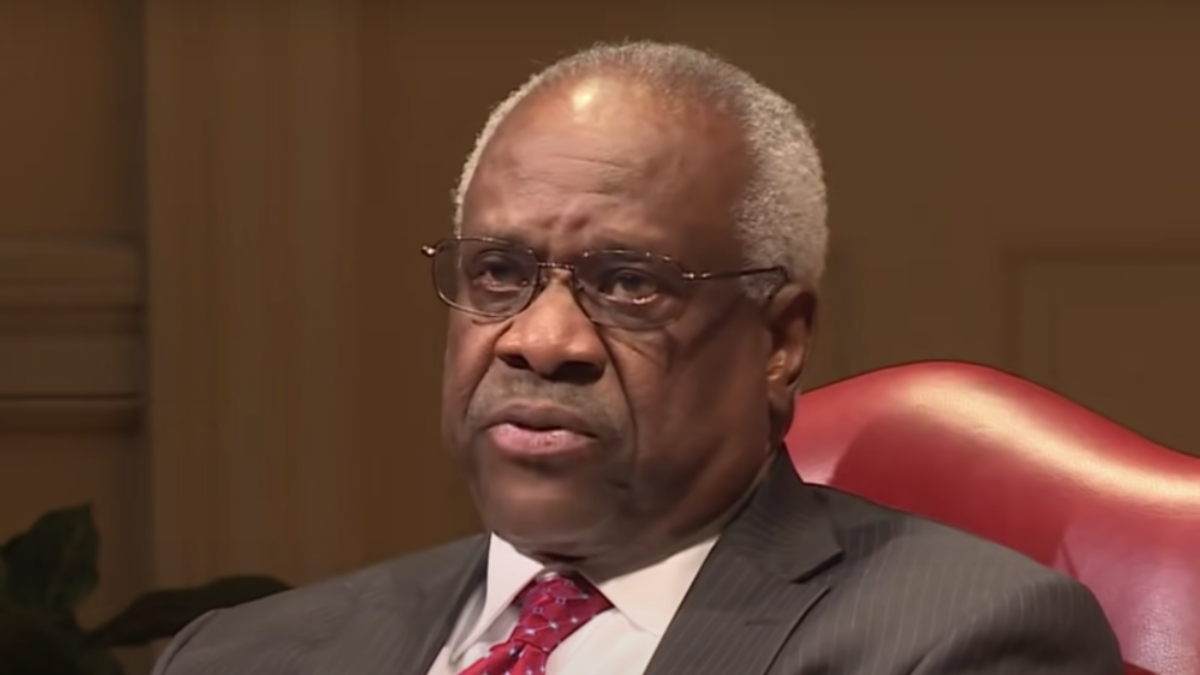U.S. Supreme Court Justice Clarence Thomas, who tends to stay quiet during oral arguments, was bursting with key questions to ask both sets of legal counsel as the court heard arguments in Dobbs v. Jackson Women’s Health Organization on Wednesday.
Justices sat down for nearly two hours to hear arguments on whether laws such as Mississippi’s 15-week abortion ban are unconstitutional. It’s a raging national debate that has set the stage for Roe v. Wade to possibly be overturned and could save countless unborn babies’ lives.
Here are three strong points the unusually outspoken Thomas raised during the hearing.
1. There Is No Constitutional Right to Kill Babies
Knowing full well that there’s no explicit, constitutionally guaranteed right to kill babies in the womb, Thomas asked U.S. Solicitor General Elizabeth Prelogar to explain just what exactly the United States’s governing document allows for abortion.
“Would you specifically tell me, specifically state what the right is? Is it specifically abortion? Is it liberty? Is it autonomy? Is it privacy?” Thomas asked.
Later, Thomas clarified that he understands “we’re talking about abortion here” but pointed out that certain constitutional amendments are very clear about what they protect and none of them mention the right to murder unborn babies.
“What is confusing is that we, if we were talking about the Second Amendment, I know exactly what we’re talking about. If we’re talking about the Fourth Amendment, I know what we’re talking about because it’s written, it’s there. What specifically is the right here that we’re talking about?” he asked.
Justice Thomas: "If we were talking about the second amendment, I know what we're talking about. Because it's written, it's there. What specifically is the right here [to abortion] that we're talking about?" pic.twitter.com/0JEPecy40z
— Greg Price (@greg_price11) December 1, 2021
2. There Are Two Lives at Stake in Every Pregnancy
During another line of questioning, Thomas repeatedly demanded both speakers on the pro-abortion legal team differentiate between prohibiting a mother from aborting her baby and stopping her from taking drugs or other substances that harm her baby.
“Does a mother have a right to ingest drugs and harm a pre-viable baby? Can the state bring child neglect charges against the mother?” Thomas asked.
Julie Rikelman of the Center for Reproductive Rights had no answer for Thomas other than the claim “that’s not what this case is about.”
Thomas later repeated the question to Prelogar.
“You heard my question to counsel earlier about the woman who was convicted of criminal child neglect. What would be your reaction to that as far as her liberty and whether or not the liberty interests that we’re talking about extends to her?” Thomas asked.
Prelogar claimed she’s not denying a state might have interest in that case but said they also need to consider the “interests of the woman on the other side of the scale and not being forced to continue with a pregnancy, not being forced to endure childbirth, and to have a child out in the world.”
“And the state’s arguments here seem to ask this court to look only at its interests and to ignore entirely those incredibly weighty interests of the woman on the other side,” Prelogar claimed.
3. Roe v. Wade Can’t Legally Stand On Its Own
In an exchange with Rikelman, once again Thomas hinted that the supposed general legal precedent set by Roe v. Wade isn’t enough to justify the removal of states’ voices when it comes to abortion policy.
“What I’m trying to focus on, is if we — is to lower the level of generality, or at least be a little bit more specific. In the old days, we used to say it was a right to privacy that the court found in the due process, substantive due process clause, okay. … And I’m trying to get you to tell me what are we relying on now? Is it privacy? Is it autonomy? What is it?” Thomas asked.









